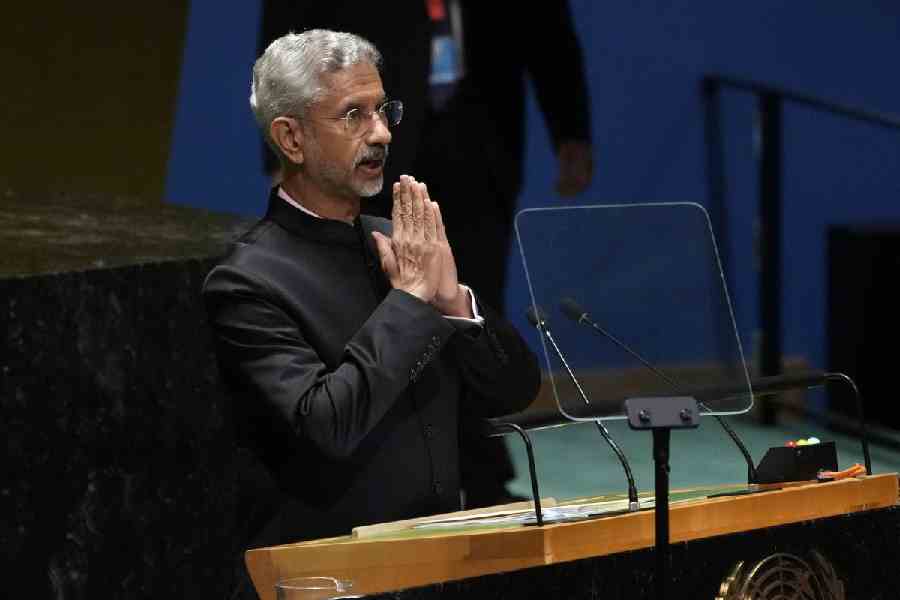Citing the example of India’s initiative at the recently concluded G20 Summit to admit the African Union as a permanent member, India on Tuesday exhorted the United Nations to get inspired “to also make the Security Council contemporary.” At the G20 Summit in New Delhi earlier this month, the grouping of emerging and developed economies adopted the New Delhi Leaders' Declaration through consensus and included the African Union as a permanent member of the bloc.
Addressing the 78th UN General Assembly session here, External Affairs Minister S Jaishankar said that the African Union's inclusion in the G20 was a "significant step." “It was (also) noteworthy that at India’s initiative, the African Union was admitted as a permanent member of the G20. By doing so, we gave voice to an entire continent that has long been denied its due," he said.
“This significant step in reform should inspire the United Nations, a much older organization, to also make the Security Council contemporary. Broad representation is a pre-requisite for both effectiveness and credibility,” Jaishakar told the United Nations General Assembly.
“As the United Nations itself symbolises, finding common ground is an imperative. To listen to others and to respect their viewpoints is not a weakness; it is the basics of cooperation. Only then can collective efforts on global issues be successful,” he said.
Pointing out how in their deliberations, countries “often advocate the promotion of a rules-based order” and “from time to time, respect for the UN Charter is also invoked,” Jaishankar said, “But for all the talk, it is still a few nations who shape the agenda and seek to define the norms. This cannot go on indefinitely. Nor will it continue to go unchallenged.” A fair, equitable and democratic order will surely emerge, once we all put our minds to it. And for a start, that means ensuring that rule makers do not subjugate rule takers,” the Minister said, adding, “After all, rules will work only when they apply equally to all.”
India, the world’s most populous country, has been at the forefront of years-long efforts to reform the Security Council, saying it rightly deserves a seat as a permanent member at the UN high table, which in its current form does not represent geo-political realities of the 21st century.
Except for the headline, this story has not been edited by The Telegraph Online staff and has been published from a syndicated feed.











